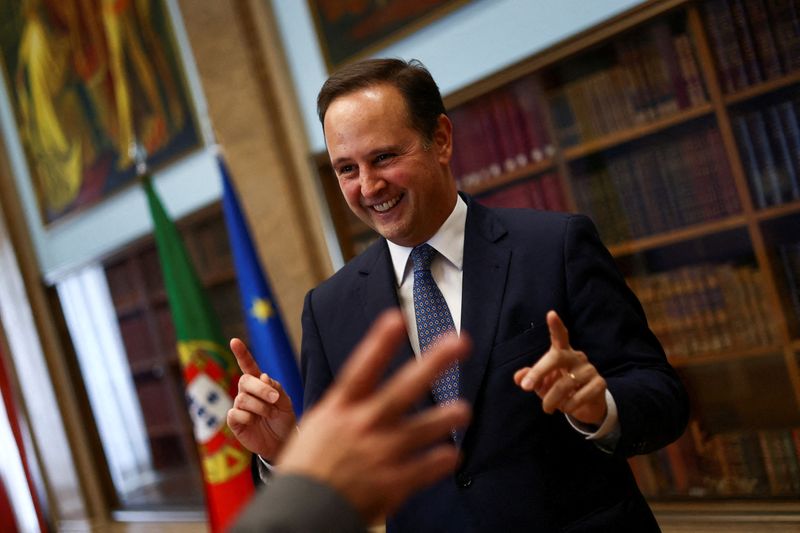By Sergio Goncalves and Aislinn Laing
LISBON (Reuters) - Portugal's finance minister has backed the European Commission's proposal to change the EU's fiscal rules to allow governments to negotiate individual debt reduction paths, but cautioned against giving them too much leeway on exempted spending.
The current rule is that euro zone countries must cut debt every year by 1/20th of the excess above 60% of GDP.
The new proposal would allow each country to agree its own debt reduction path of between four and seven years with the agreement of the Commission and other EU finance ministers.
Finance Minister Fernando Medina told Reuters in an interview that Portugal had stuck to the fiscal rules even when they were suspended during the pandemic and he welcomed the "more realistic and achievable targets" and notion of giving individual states more "ownership".
He called, though, for more "open debate" about spending criteria and the distribution of powers between the commission, the member states and the council.
Portugal wants the SURE joint borrowing scheme which financed unemployment benefits programme during the pandemic to be made permanent, Medina said. However, he cautioned against too many priority spending areas such as defence or climate change investments that might be exempted from deficit rules.
"You run the risk of widening differences between European countries - those that have more budget margin or more debt margin could invest much more without submitting to the same rules as others," he said.
Medina signalled that he would like the ECB to adopt a more cautious monetary policy stance to allow time for previous hikes to take effect and avoid the "worst case scenario" of high inflation and recession, echoing similar calls from others.
The ECB was "wise" not to raise rates when post-pandemic supply chain constraints and the war in Ukraine pushed up energy, raw material and imported food prices, and to tighten as the causes and effects of price rises diversified.

"The third phase...will need strong coordination between monetary and fiscal policy to limit inflation but... also avoid the risk of recession," he said. "It's a very narrow road that demands sensitive navigation."
The ECB has raised rates by a combined 200 basis points since July, its fastest pace of tightening on record, and market pricing suggests it is just over halfway done with the next move in the form of a 50- or 75-basis-point hike coming in December.